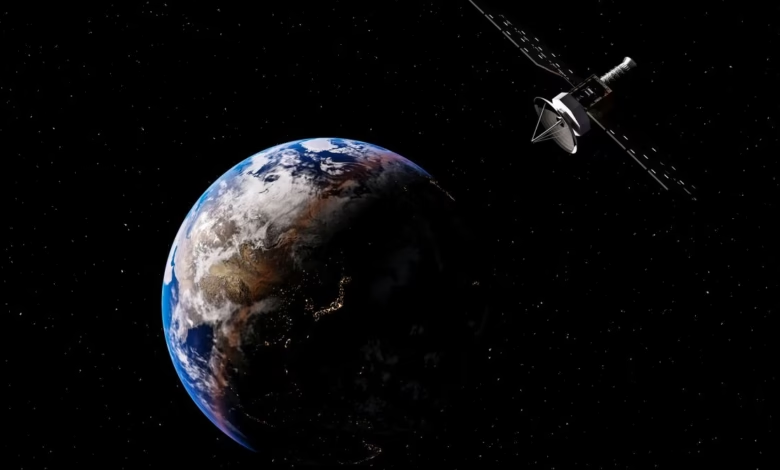EU Unveils New Rules to Regulate Europe’s Space Race

▼ Summary
– Around 11,000 satellites currently orbit Earth, with an estimated 50,000 more to be launched in the next decade, raising concerns about regulation.
– The EU proposed the Space Act to address fragmented national regulations, aiming to create a cleaner, safer, and more competitive European space sector.
– The Space Act focuses on safety (debris tracking and disposal), resilience (cybersecurity measures), and sustainability (managing emissions and waste).
– The EU plans support measures like technical assistance and funding to help companies, especially startups and SMEs, comply with the new regulations.
– The EU aims to strengthen its global space leadership through initiatives like the European Space Team and investments to boost competitiveness and autonomy.
With over 11,000 satellites currently orbiting Earth and projections suggesting another 50,000 will join them within ten years, the need for structured space governance has never been more urgent. The European Union has stepped forward with its proposed Space Act, a comprehensive regulatory framework designed to address the growing complexities of orbital activities while positioning Europe as a leader in the global space economy.
Currently, space regulations across EU member states remain fragmented, creating inefficiencies that hinder innovation and increase operational costs. The new legislation aims to streamline processes, enhance safety protocols, and foster fair competition. Three core principles form the backbone of the Space Act: safety, resilience, and sustainability.
Safety measures tackle the escalating issue of space debris, with over 128 million fragments currently cluttering Earth’s orbit. The Act mandates stricter tracking systems and enforces end-of-life disposal protocols for satellites to minimize further pollution. Resilience provisions address rising cybersecurity threats targeting space infrastructure, requiring operators to conduct thorough risk assessments and adopt updated security standards. Meanwhile, sustainability guidelines focus on reducing CO₂ emissions and managing space-related waste more effectively.
The regulations will apply not only to EU-based entities but also to foreign operators providing services in Europe. Compliance requirements will scale according to company size and risk level, ensuring fairness without stifling innovation. Recognizing the financial burden these rules may impose, the EU has pledged support mechanisms, including technical assistance and streamlined authorization processes, particularly beneficial for startups and SMEs.
Beyond regulation, the EU has outlined an ambitious economic strategy to strengthen its position in the global space market. Over 40 targeted initiatives aim to enhance Europe’s technological autonomy and market competitiveness. Key among them is the formation of the European Space Team, a collaborative platform uniting major stakeholders like the European Space Agency to align efforts across the bloc. Additional investment programs will further fuel growth in this high-potential sector.
Henna Virkkunen, the European Commission’s Executive Vice President, emphasized the long-term vision behind the Space Act: “Europe’s leadership in space hinges on sovereignty, security, and foresight. This legislation ensures our infrastructure remains resilient, our innovation thrives, and our technological independence endures.”
As space becomes increasingly congested and contested, the EU’s proactive approach could set a benchmark for responsible and competitive space governance worldwide.
(Source: Wired)





